Release Time:2024-09-24Update time:2025-09-12Reading times:1259
2024 BRICS Smart City Index released in Moscow
On September 19, 2024, a forum themed “Smart Cities amid Global Changes and BRICS Smart City Index”, which as part of the 2024 BRICS Urban Future Forum, was held in the main auditorium of the Zaryadye Concert in Moscow. The forum was co-hosted by the Moscow Innovation Cluster (MIC), Harbor Overseas, the Institute for Global Cooperation and Understanding (iGCU) at Peking University, the Center for Science & Technology Development and Governance of Tsinghua University, and the Institute for Urban Internationalization Studies at Zhejiang International Studies University. The BRICS Urban Future Forum is one of the most important international forums before the 2024 BRICS Summit.
A guide to the development of smart cities around the world
The 2024 BRICS Smart City Index evaluates 138 cities. The Chinese cities of Beijing, Shanghai, Guangzhou, Shenzhen, Hangzhou, Tianjin, Jinan and Hong Kong rank among the top 10% in terms of overall score. Moscow and St. Petersburg of Russia, Abu Dhabi and Dubai of the United Arab Emirates (UAE), and Riyadh of Saudi Arabia are also among the top 10%. Asian cities hold significant advantages in both overall score and sub-index rankings. Cairo and New Cairo in Egypt rank among the top 10% on digital infrastructure and institutional infrastructure sub-indexes. Dr. Xi Chen, author of the report and Distinguished Professor at Zhejiang International Studies University, noted that there is an imbalance in the development levels of smart cities among BRICS countries, with cities in China, Russia, the UAE, and Saudi Arabia possessing strong global, systematic competitiveness, thanks to their diversified infrastructure. Cities in other BRICS countries such as India, Brazil, Ethiopia, Iran, South Africa, and Egypt can hardly compete with them.
Prior to the release of the report, Mr. Feng Litao, Minister-Counselor of the Embassy of the People’s Republic of China to the Russian Federation, and Director of the Chinese Cultural Center in Moscow, and Prof. Zhenhua Mao, Vice President of Zhejiang International Studies University, delivered speeches. Mr. Feng said that cities are hubs for human cultural and economic activities. The Chinese Embassy in Russia encourages and supports ongoing exchanges and cooperation between Chinese and Russian cities. Vice President Mao expressed his hope that the systematic methodology proposed by top Chinese scholars can contribute to the practical and theoretical explorations by cities in BRICS countries in the field of smart city development and region and country studies.
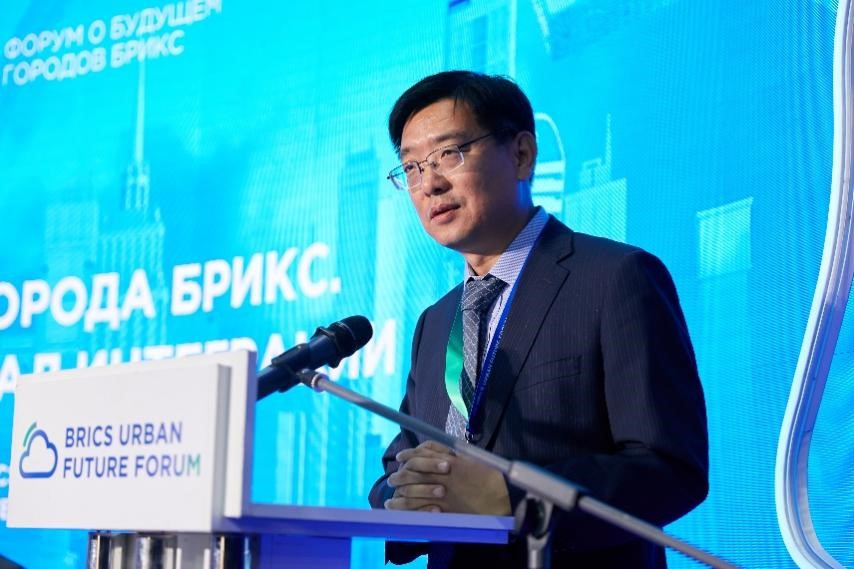
Mr. Feng Litao, Minister-Counselor of the Embassy of the People’s Republic of China to the Russian Federation, and Director of the Chinese Cultural Center in Moscow, delivers a speech
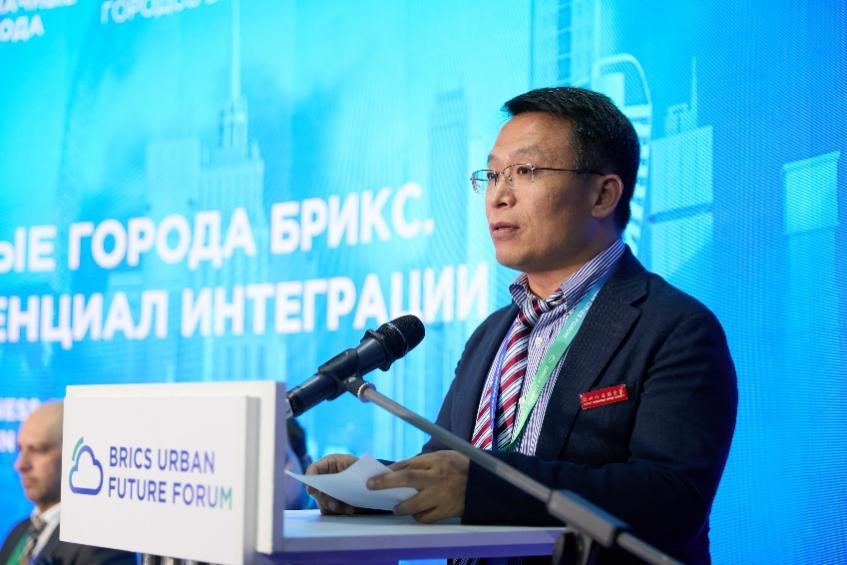
Prof. Zhenhua Mao, Vice President of Zhejiang International Studies University, delivers a speech
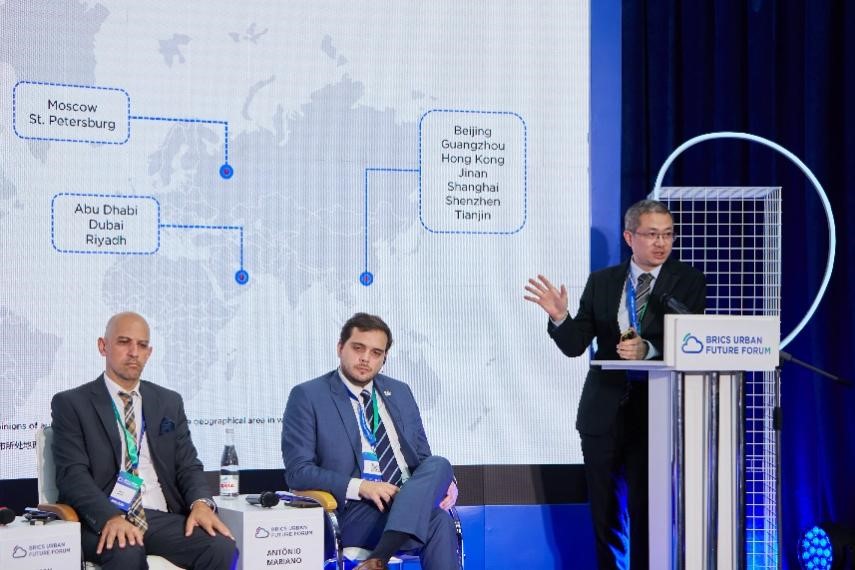
Dr. Xi Chen, Distinguished Professor at Zhejiang International Studies University, releases the report
Discussions among world-class scholars
Mr. Alexey Parabuchev, President of MIC, hosted a panel comprising experts from China, the UAE, Russia and Brazil, who discussed smart cities and regional development in BRICS countries. Mr. Eduard Lysenko, Head of Moscow Department of Information Technologies, said that BRICS countries need to share best practices in areas such as AI application and urban management systems. He also encouraged the synergy between the Belt and Road Initiative and the Eurasian Economic Union. Prof. Xi Chen said that the likelihood of revolutionary technological advancements globally between 2025 and 2030 is not high, which means that global growth will rely on the structural adjustment of existing industries. Between 2030 and 2050, technological revolutions may be driven by sixth-generation communication technology, quantum computing, and space infrastructure, which will change the way humans communicate and travel, and make living on the moon or Mars a reality. BRICS cities need to establish diverse infrastructure oriented towards regional integration and synergy to avoid severe industrial and social challenges in the next generation of technological revolution. Dong Wang, Professor at School of International Studies at Peking University and Executive Director of iGCU, said that a smart city development system featured by regional integration will enhance the global competitiveness and discourse power of BRICS countries in the process of re-globalization. Prof. Xufeng Zhu, Dean of School of Public Policy & Management and Director of the Center for Science & Technology Development and Governance, Tsinghua University, said that regional level actions will enhance global governance capabilities, including urban resilience. Mr. Ismail Tekin, Vice Chairman of World Organization for Development, and Mr. Antônio Mariano, Special Coordinator for International Relations and Cooperation Rio de Janeiro, shared their experience in smart transportation and big data in Abu Dhabi and Rio de Janeiro, respectively, hoping to help achieve the United Nations Sustainable Development Goals.
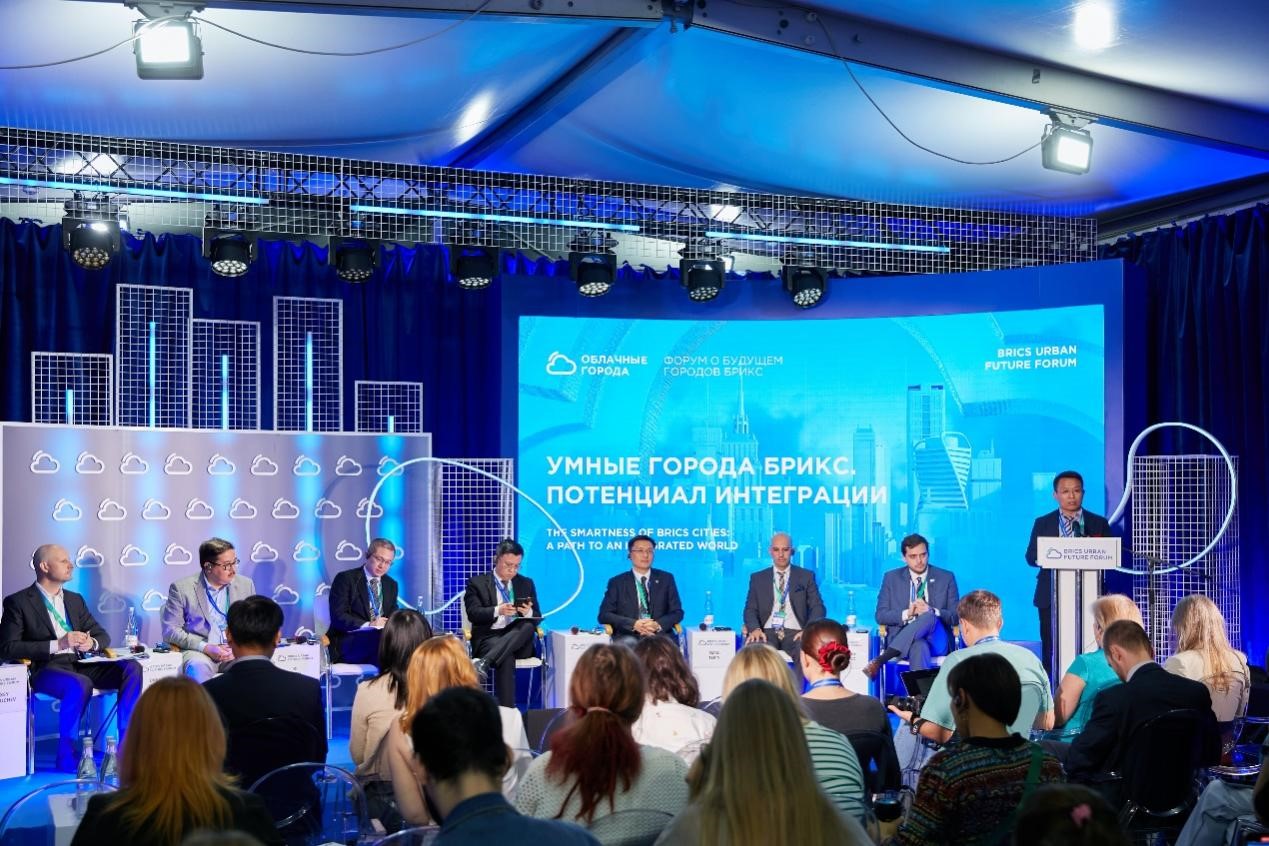
Scene of the forum

Professor Xi Chen
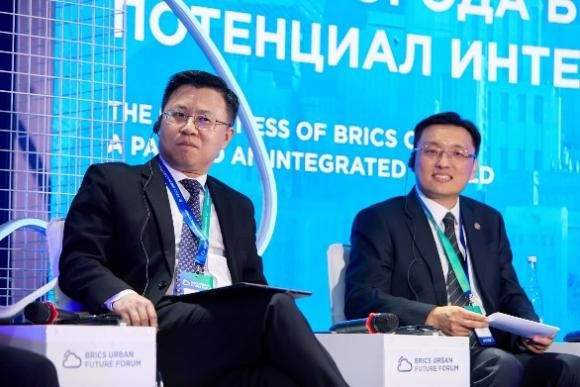
Professor Dong Wang, Professor Xufeng Zhu
Prior to the release of the 2024 BRICS Smart City Index, the 2024 League of Arab States (LAS) Smart City Ranking was unveiled on September 16, 2024, at the 2024 China International Fair for Trade in Services (CIFTIS) held in Beijing. Both reports were jointly published by Harbor Overseas, iGCU, the Center for Science & Technology Development and Governance of Tsinghua University, the Shenzhen Finance Institute, and the Institute for Urban Internationalization Studies at Zhejiang International Studies University. The 2024 LAS Smart City and the 2024 BRICS Smart City Index, coupled with the 2022 Asia Smart City Ranking and the 2023 The Group of Twenty (G20) Smart City Ranking released in Beijing, constitute the series studies on the ranking of smart cities, guiding the development of smart cities and regional integration around the world. They have greatly enhanced Chinese scholars’ standard-making power and discourse power in the fields of smart cities and global governance.